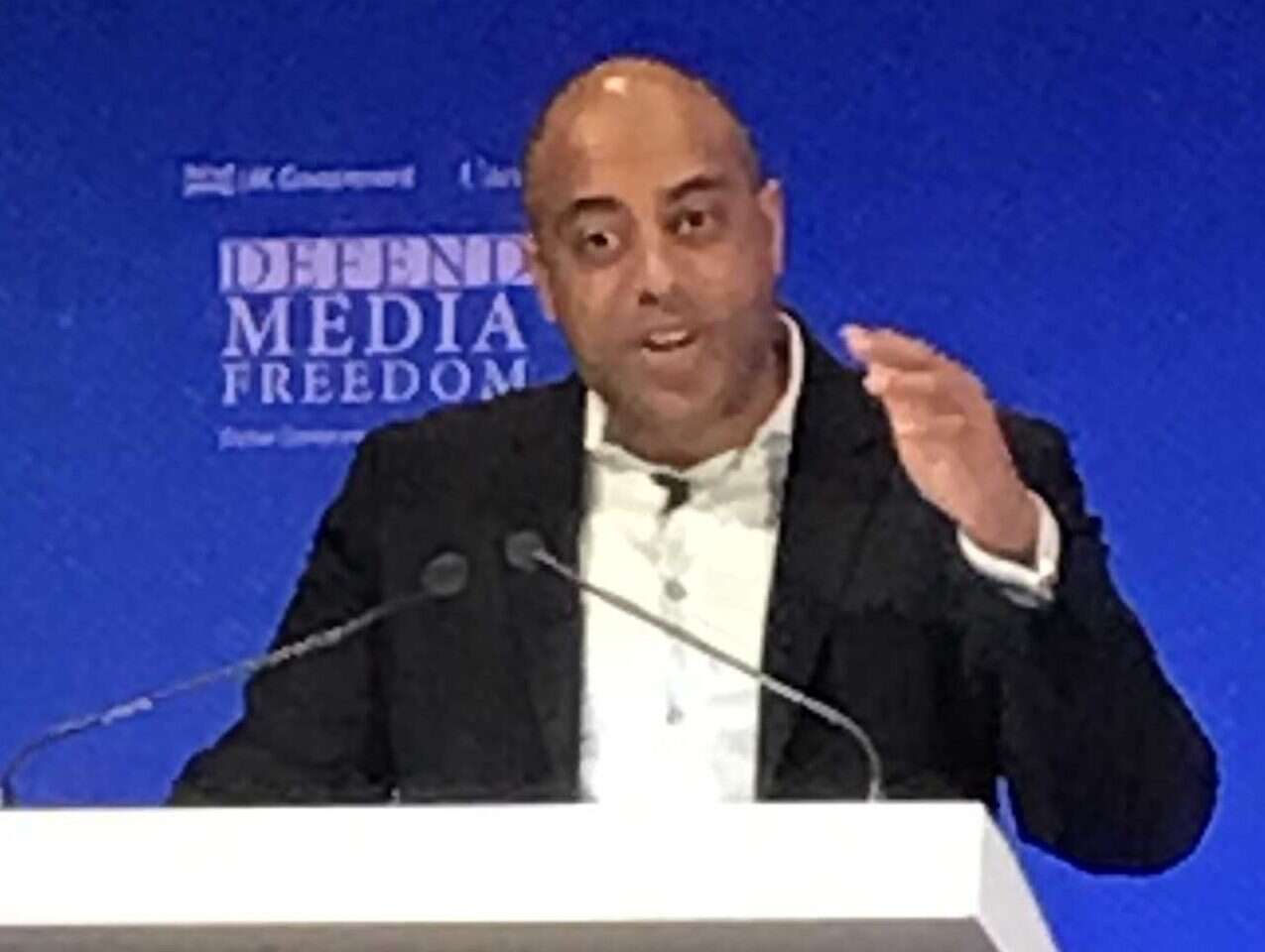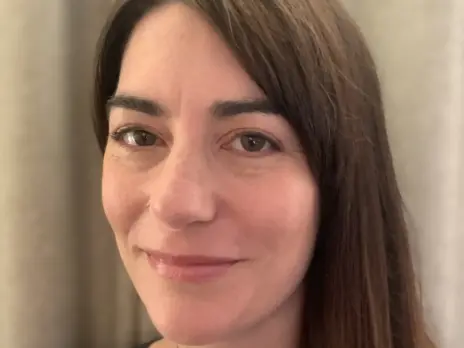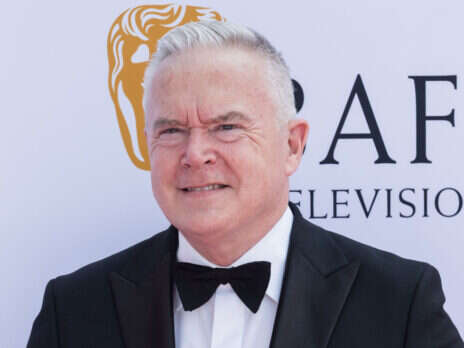
ITV News security editor Rohit Kachroo has revealed how he was threatened with an electric drill by a man shouting “fake news” as he went to knock on a door in the course of his job as a journalist.
Kachroo (pictured) called for better action against “lunatic” conspiracy theorists who spread falsehoods on social media as he spoke as part of a panel on trust in the UK media at a global press freedom conference in London today.
The journalist said he agreed with representatives from press regulator IPSO and Canadian broadcaster CTV as he called for action to quickly improve media literacy in the UK through education.
Kachroo told delegates at the media freedom conference this morning that the man with the drill, who lived next door to a house they were visting, had shouted “propaganda” at them and decried the “mainstream media”.
Despite the threat of the drill, Kachroo said the man’s language was the “most significant” part of the encounter.
“It sounded like language he picked up from politicians,” he said. “Not just in the White House but right across the world including here in the UK.”
Kachroo also said that before an interview, his subject had admitted off-camera that he only began to believe the Westminster and Manchester terror attacks in 2017 had really happened after the London Bridge attack.
“Using the language of conspiracy theorists, he said he previously assumed… they were so-called false flags, that they didn’t happen, and that what we were broadcasting on the TV… was a state conspiracy and the media were co-conspirators,” he said.
“I was shocked, but what was even more shocking was that he eventually changed his mind but many of his friends and family didn’t. [They] believe journalists are part of the lie in this post-truth world.”
The journalist added that the intentions of political leaders attending the media freedom conference were “great” but that “the political class around the world can’t claim to be both arsonists and firefighters”.
He also raised concerns over the spread of conspiracy theories across the internet, referencing the supporters of Stephen Yaxley-Lennon, better known as Tommy Robinson, many of whom have refused to believe the “mainstream media” reports explaining his contempt of court conviction.
He also referred to false news stories that Canadian Prime Minister Justin Trudeau had begged foreign leaders to send him 1m refugees.
Kachroo went on: “You can find parallels with the fire at Notre Dame. In those hours before people really knew what was happening, I was watching it on my phone – conspiracy theories blowing up about a man in Arabic robes or somebody shouting Allahu Akbar.
“You would be surprised how many people still believe that. I heard a couple of people on the Tube the other day talking about a visit to Notre Dame. They were saying as fact it was burned down by Muslim terrorists.
“Where do these conspiracy theories come from? They come from a range of sources but they all exist on social media platforms and this is where school-age people are consuming their news.”
The journalist said that while education is important, social media companies need to remove the “lunatics spreading theories” from their platforms.
Alongside Kachroo on the panel were Independent Press Standards Organisation chairman Sir Alan Moses and UNESCO chairman in Media Freedom, Journalism Safety and the Issue of Impunity Professor Jackie Harrison.
Harrison said there “has to be something now” to improve media literacy among the UK population, noting that starting to teach it to young children would have a “long lead time”.
Sir Alan added: “Education’s going to take a long time. It does seem to me, while absolutely vital, that there are things we can do now and that’s have far greater publicity for asking people to look for signs of reliability and authoritative sources.”
He suggested Google should carry a fact check on its search results, which the tech giant’s director of news ecosystem Madhav Chinnappa insisted it already did.
Lisa LaFlemme, chief news anchor of CTV National News in Canada, added: “There should be an industry standard across the board – it’s a bit ad hoc at the moment.”
Email pged@pressgazette.co.uk to point out mistakes, provide story tips or send in a letter for publication on our "Letters Page" blog






